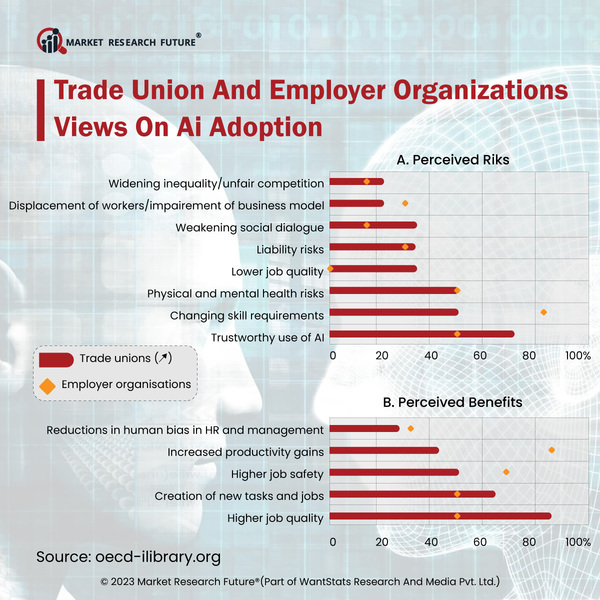OECD Reports AI Boosts Job Quality But Raises Concerns On Usage
Artificial intelligence (AI) plays a significant role in almost every global market sector. This technology helps in creating new work opportunities along with new business models. By supplementing human capabilities, artificial intelligence contributes in various ways that can lead to higher productivity and more human workforce demand.
The Organization for Economic Cooperation and Development (OECD) has released a new report on the employment outlook 2023. It talks about various risks due to artificial intelligence and the significant issues that must be addressed urgently. One among the series of threats that comes with artificial intelligence is trustworthy usage. This issue includes privacy, security, transparency, accountability, and the growing demands for an individual's rapidly changing skills and mental and physical well-being due to excessive AI-based surveillance. These are the crucial areas on which the trade unions show concern. According to the OECD Outlook 2023, adopting AI in the workplace boosts the development of new AI management models that could assist the change, like the relationship between firms and workers. The major difference between the before and after phase of artificial intelligence is that AI can also do non-routine tasks that extends considerably the scope of automation.
The survey conducted questionnaire addressed to employers and trade unions organizations to get better clarity on the fear over the new transition of AI. The main concern that the organizations have raised is based on the trust-related issues with using artificial intelligence mainly, followed by the demands in changing skills and physical and mental well-being of the workers at the workplace. The employers hold the requirements for the upgradation of skills as the biggest concern, while the trade unions find ethical issues the biggest threat. Both groups differ in their opinions on the benefits of AI adoption at the workplace- the employers primarily view AI as playing an essential role in job security and potentiality for productivity gains; and the unions view job quality improvement along with creating new tasks at the workplace. Also, the majority of the respondents agreed that adopting AI in the work can improve the jobs and develop an effective collaboration between the workers and the artificial intelligence, resulting in rising autonomy in work and reduced work time for the workers.






